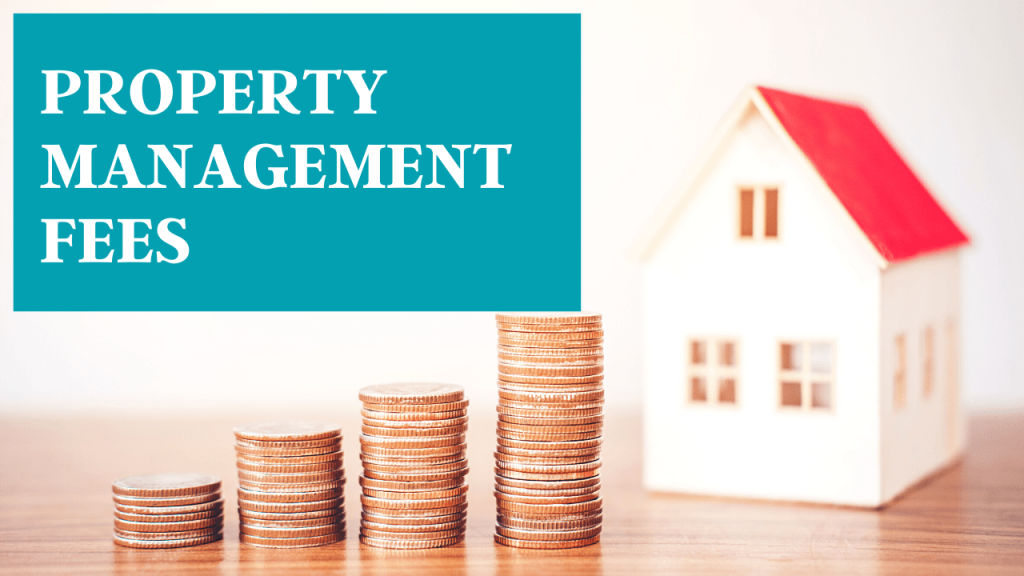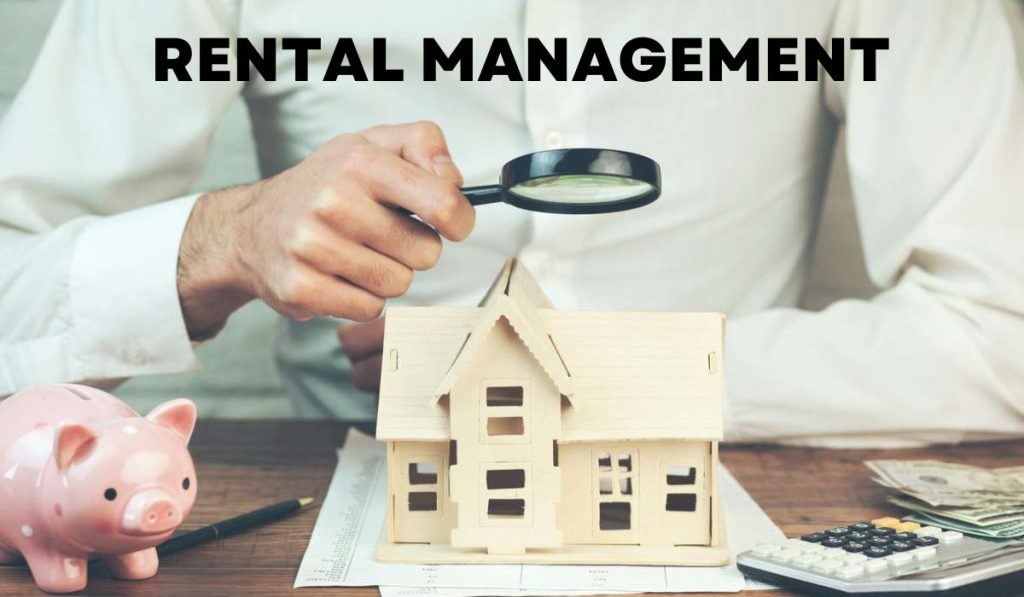Investing in rental properties in New York can be a lucrative venture, but it comes with its own set of challenges. Effective property management is the key to success in this competitive market.
What Does An Investment Property Management Company Do?
This comprehensive guide will walk you through the essential aspects of investment property management in New York, providing you with valuable insights and tips to help you navigate the real estate landscape successfully.
Table of Contents:
- Understanding the New York Real Estate Market
- Choosing the Right Investment Property
- Legal and Regulatory Considerations
- Property Maintenance and Upkeep
- Marketing and Tenant Screening
- Rent Collection and Financial Management
- Dealing with Tenant Issues
- Property Management Tools and Resources
- Conclusion: Building a Profitable Investment Portfolio
1. Understanding the New York Real Estate Market
Before you dive into investment property management, it’s crucial to gain a solid understanding of the New York Real Estate Market. New York City, in particular, is known for its dynamic and diverse housing market. Key factors to consider include location, market trends, property values, and rental demand. A strong grasp of these elements will help you make informed investment decisions.
New York City’s real estate market can be characterized as one of the most vibrant and competitive in the world. To successfully manage investment properties in this dynamic environment, you need to be well-versed in the intricacies of the New York market.
Understanding Location: In New York, location is paramount. Different neighborhoods offer varying rental rates, tenant demographics, and property appreciation potential. Whether you’re eyeing a trendy Manhattan condo or a brownstone in Brooklyn, the location will have a significant impact on your property’s success. Research the neighborhoods thoroughly and consider factors like proximity to public transportation, schools, and amenities.
Market Trends: Stay up-to-date with market trends and forecasts. New York’s real estate market can be influenced by local and global economic factors. Keep an eye on rental rates, property values, and vacancy rates to make informed decisions about your investments.
Property Values: Property values in New York can vary greatly. It’s important to assess the potential for appreciation in the area where you plan to invest. Historical data can provide insights into how property values have trended over the years.
Rental Demand: New York’s diverse population and vibrant economy create a consistent demand for rental properties. However, understanding the specific rental demands in different neighborhoods is key to finding the right tenants for your properties.
2. Choosing the Right Investment Property
Selecting the right investment property is the foundation of successful property management. Consider factors such as property type, location, budget, and long-term goals. For instance, New York City offers a variety of property types, from condos and co-ops to multi-family buildings. Conduct thorough research and consult with experts to make a well-informed choice.
Property Type: New York offers a diverse array of property types. Condos and co-ops are prevalent in Manhattan, offering a more urban lifestyle, while multi-family buildings are common in Brooklyn and Queens. Each type has its advantages and considerations. Condos may require less maintenance, but co-ops often have stricter rules and requirements for owners. Multi-family buildings can provide multiple income streams but might need more extensive upkeep.
Budget and Financing: Determine your budget and financing options. New York’s real estate market can be competitive, and properties may come with a hefty price tag. Make sure you have a clear understanding of your budget and secure financing before you start your property search. Additionally, consider the potential for property appreciation when calculating your budget.
Long-Term Goals: Define your long-term investment goals. Are you looking for properties that will generate immediate rental income, or are you planning for long-term appreciation? Your investment strategy will impact the type of properties you pursue and the neighborhoods you consider.
Expert Consultation: Seek advice from real estate professionals and investment experts who specialize in the New York market. A knowledgeable real estate agent can provide valuable insights and help you navigate the complex New York market.
3. Legal and Regulatory Considerations
New York has stringent laws and regulations governing rental properties. Familiarize yourself with landlord-tenant laws, rent stabilization laws, and building codes. It’s crucial to comply with these regulations to avoid legal issues and potential fines. Consulting with an attorney well-versed in New York real estate law is advisable.
Landlord-Tenant Laws: New York’s landlord-tenant laws are designed to protect both landlords and tenants. It’s essential to understand these laws, including rent control and rent stabilization rules, eviction processes, security deposit regulations, and tenant rights. Staying informed and following the legal procedures is vital to maintaining a successful rental property.
Building Codes and Zoning Laws: Familiarize yourself with local building codes and zoning laws. These regulations can impact property maintenance, renovations, and property use. Violating building codes can lead to costly fines and legal troubles.
Environmental Regulations: New York has specific environmental regulations, especially in older buildings. Asbestos, lead paint, and other environmental concerns should be addressed in compliance with the law.
Rent Stabilization Laws: New York City has rent stabilization laws that affect certain rental properties. Understanding these laws is crucial if your investment property falls under their jurisdiction. Rent stabilization limits rent increases and provides tenants with additional rights.
Property Insurance: Invest in comprehensive property insurance to protect your investment. New York’s extreme weather conditions, such as heavy snowfall and hurricanes, can lead to property damage. Adequate insurance coverage can save you from unexpected financial burdens.
4. Property Maintenance and Upkeep
Property maintenance is a vital aspect of investment property management. Regular inspections, repairs, and maintenance ensure that your property remains attractive to tenants and retains its value. Consider hiring a reliable maintenance team or property management company to handle these responsibilities efficiently.
Regular Inspections: Schedule regular property inspections to identify maintenance needs and address them promptly. These inspections can reveal issues with plumbing, electrical systems, heating, and cooling, as well as structural concerns.
Routine Repairs: Stay on top of routine repairs. Addressing minor issues can prevent them from becoming major and expensive problems. Fix leaky faucets, damaged appliances, or minor structural damage promptly.
Preventative Maintenance: Implement preventative maintenance measures to extend the lifespan of your property’s systems and components. This includes tasks like servicing HVAC systems, checking the roof for leaks, and maintaining the landscaping.
Emergency Response: Have a plan in place for handling emergencies. In New York, extreme weather events like snowstorms and hurricanes can cause property damage. Be prepared to respond to emergencies swiftly, keeping tenants safe and minimizing property damage.
Property Management Company: Consider enlisting the services of a professional property management company. These experts can handle property maintenance, tenant issues, and other day-to-day responsibilities, freeing you from the time and effort required for hands-on management.
5. Marketing and Tenant Screening
Effective marketing and tenant screening are essential for securing reliable tenants. Utilize various advertising platforms to reach a broad audience. When screening potential tenants, evaluate their credit history, employment status, and Rental History to Minimize Risks.
Marketing Your Property:
Online Listings: List your property on popular rental websites and platforms. High-quality photos and detailed descriptions can attract potential tenants.
Social Media: Use social media to market your properties. Create engaging posts and share them on platforms like Facebook,
Twitter, and Instagram. Engage with your audience and respond promptly to inquiries.
Professional Photography: High-quality photos can make a significant difference in marketing your property. Consider hiring a professional photographer to capture your property’s best features.
Local Real Estate Agents: Collaborate with local real estate agents who specialize in rentals. They can help you find qualified tenants and may have a network of prospective renters.
Tenant Screening:
Credit Checks: Request permission from potential tenants to perform credit checks. A good credit score can indicate financial responsibility.
Employment Verification: Verify the employment status and income of prospective tenants to ensure they can afford the rent.
Rental History: Contact previous landlords to inquire about tenants’ rental history, including their reliability, cleanliness, and adherence to lease terms.
Background Checks: Conduct background checks to assess the criminal history of potential tenants.
References: Ask for references from prospective tenants, such as personal references or professional contacts who can vouch for their character.
Tenant Interviews: Conduct in-person or virtual interviews to get to know potential tenants better. This interaction can help you gauge their suitability as renters.
Effective marketing and thorough tenant screening can help you find tenants who are a good fit for your property and who are likely to pay rent on time and take good care of the unit.
6. Rent Collection and Financial Management
Steady cash flow is a cornerstone of successful property management. Establish a clear rent collection system, which may include online payment options. Additionally, maintain thorough financial records to track income and expenses. This organized approach simplifies tax reporting and budgeting.
Rent Collection:
Online Payment Options: Provide tenants with the convenience of online rent payments. Online platforms make it easy for tenants to pay their rent, and it streamlines the collection process for landlords.
Lease Agreements: Ensure your lease agreements specify the due date for rent, late fees, and the payment method. Clarity in lease agreements can prevent confusion and disputes.
Late Rent Policies: Have clear policies in place for handling late rent. Outline penalties for late payments and follow these procedures consistently.
Financial Records:
Income and Expense Tracking: Maintain detailed records of your property’s income and expenses. This includes rental income, utility bills, property maintenance costs, and property management fees.
Budgeting: Create a budget that covers ongoing expenses, such as property taxes, insurance, and maintenance, as well as potential vacancies and unexpected repairs.
Tax Reporting: Keep well-organized financial records to simplify tax reporting. Understand the tax deductions available to property owners, such as mortgage interest, property taxes, and depreciation.
Accounting Software: Consider using accounting software to streamline financial management. Software tools can help you track income and expenses, generate reports, and stay organized.
Financial Transparency: Provide tenants with clear, itemized rent receipts to maintain transparency and accountability.
Managing your property’s finances diligently is critical for maintaining a profitable investment.
7. Dealing with Tenant Issues
Tenant issues are a part of property management. From maintenance requests to disputes, handling these matters professionally is crucial. Effective communication and timely resolution of problems can foster positive tenant-landlord relationships.
Maintenance Requests: Respond promptly to maintenance requests from tenants. Efficient maintenance can prevent minor issues from becoming major problems and improve tenant satisfaction.
Communication: Maintain open lines of communication with your tenants. Encourage them to report issues and concerns, and address these promptly. Responsive communication can help you maintain positive relationships.
Dispute Resolution: In cases of disputes, use a fair and professional approach to resolve issues. Understand tenant rights and responsibilities, and ensure your actions comply with the law.
Security Deposit Handling: Adhere to legal requirements for handling security deposits. Provide an itemized list of deductions and return any remaining deposit within the specified timeframe.
Tenant Retention: Focus on tenant retention. Happy, long-term tenants reduce turnover costs and vacancies.
Evictions: If eviction becomes necessary, follow the legal process meticulously. Consult with an attorney experienced in New York landlord-tenant law to ensure compliance with legal requirements.
Effective management of tenant issues can contribute to tenant satisfaction, lower turnover, and better financial outcomes for your investment properties.
8. Property Management Tools and Resources
Numerous tools and resources are available to streamline property management in New York. Property management software, for instance, can assist with rent collection, maintenance tracking, and financial reporting. Additionally, property management associations and networking groups provide valuable support and insights.
Property Management Software:
Tenant and Lease Management: Property management software can help you manage tenant information, lease agreements, and rent collection efficiently.
Maintenance Tracking: Utilize software tools to track maintenance requests, schedules, and costs.
Financial Management: Software can simplify financial tasks, including income and expense tracking, budgeting, and reporting.
Communication: Some software solutions offer communication features that allow tenants to submit requests and messages.
Property Management Associations:
Local Associations: Join local property management associations in New York for networking opportunities and access to educational resources.
Online Communities: Participate in online property management forums and communities to share experiences and gain insights from other property managers.
Professional Services:
Property Management Companies: Consider enlisting the services of a property management company to handle day-to-day property management tasks, especially if you have multiple properties.
Real Estate Attorney: Consult with a real estate attorney experienced in New York law to navigate legal complexities.
Accountants and Tax Professionals: Engage accountants or tax professionals to ensure accurate financial management and compliance with tax regulations.
Maintenance and Repair Services: Build relationships with reliable maintenance and repair service providers for timely responses to property issues.
Property management tools and resources can enhance your efficiency and effectiveness as a property manager.
9. Conclusion: Building a Profitable Investment Portfolio
In conclusion, investment property management in New York is a multifaceted undertaking that demands careful planning and continuous effort. By following the guidelines in this ultimate guide, you can navigate the complexities of the New York real estate market and establish a successful and profitable investment property portfolio.
New York’s real estate market offers a wealth of opportunities, but it also presents unique challenges. Understanding the local market, choosing properties wisely, adhering to regulations, maintaining your investments, and effectively managing tenants are all crucial elements of success.
Your journey as a property manager in New York may require dedication, knowledge, and a commitment to excellence. However, by diligently implementing the principles outlined in this guide, you can thrive in this competitive market. With the right strategies and a focus on building positive tenant-landlord relationships, you can create a profitable investment property portfolio that generates consistent income and appreciates in value.
Investment property management in New York is not without its challenges, but with the right knowledge and a strategic approach, you can achieve your real estate investment goals in the Empire State. Good luck on your journey to becoming a prosperous property manager in New York, and may your investments yield fruitful results in the vibrant and dynamic real estate market of the city.






